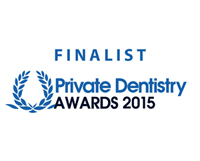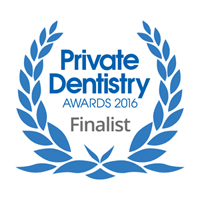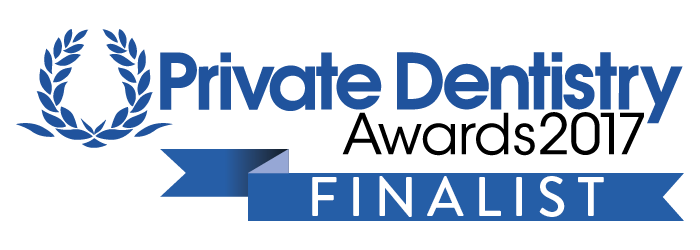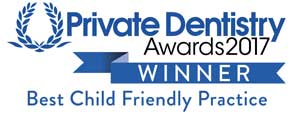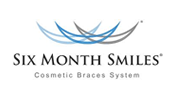
CALL NOW: 020 8673 7727
Blogs
What Can be Done About White Spots on Your Teeth?
 Do you suffer from white spots on the surface of your teeth? This is normally caused by a condition known as dental fluorosis. The chances are high that you received too much fluoride at an early age. While these spots won’t affect the health of your teeth, they might make you uncomfortable in social situations.
Do you suffer from white spots on the surface of your teeth? This is normally caused by a condition known as dental fluorosis. The chances are high that you received too much fluoride at an early age. While these spots won’t affect the health of your teeth, they might make you uncomfortable in social situations.
What treatment options are available?
– Teeth whitening procedures can help these spots to blend in.
– Dental veneers are another option to cover them up.
– A process known as micro-abrasion may also be performed to reduce the appearance.
Fortunately, dental fluorosis isn’t normally harmful to the teeth.
Take a look at how a dentist can treat these white spots:
https://yourdentalhealthresource.com/do-you-have-white-spots-on-your-teeth/
Posted by adwords on 4th December 2019, under Practice Blog
Why You Should Be Wary of These Scary Snacks!
 As any dentist will tell you, there are some snacks that can damage your teeth if you’re not careful:
As any dentist will tell you, there are some snacks that can damage your teeth if you’re not careful:
– Foods like olives should be eaten with caution in case they still have the stony seed inside and can result in toothache if bitten.
– Chewy caramels can damage the tooth enamel resulting in decay and also potentially remove loose fillings so consumption should be kept to a minimum.
– Frozen food and bread can also chip your teeth.
Read the full story here: https://yourdentalhealthresource.com/boo-top-scary-foods-that-can-hurt-your-teeth/
Posted by adwords on 7th November 2019, under Oral Hygiene and Prevention
What is Laser Dentistry?
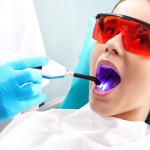 Laser dentistry has been used since the early 90’s and requires specialized training to operate the equipment properly. The laser is simply a very strong, intense and focussed light beam that can be used to cut, trim and shape gum tissue.
Laser dentistry has been used since the early 90’s and requires specialized training to operate the equipment properly. The laser is simply a very strong, intense and focussed light beam that can be used to cut, trim and shape gum tissue.
Laser dentistry is particularly suited for treating:
– Gum inflammations and disease
– Benign growths and tumours
– Root canal infections
Lasers can also help with teeth whitening procedures and the treatment of temporomandibular joint and other jawbone problems. It is only a matter of time before laser dentistry will largely replace old style scalpels and drills in the dentist’s office as the technology develops and you can find out more at https://yourdentalhealthresource.com/what-exactly-is-laser-dentistry/
Posted by adwords on 29th October 2019, under Oral Hygiene and Prevention
Importance of Deep Dental Cleaning
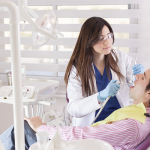 Keeping teeth and gums clean and healthy is an ongoing process but, despite the best efforts, plaque and tartar will continue to accumulate. Regular cleaning by the dentist will help address the problem but this is not enough by itself.
Keeping teeth and gums clean and healthy is an ongoing process but, despite the best efforts, plaque and tartar will continue to accumulate. Regular cleaning by the dentist will help address the problem but this is not enough by itself.
A deep dental cleaning is important as it allows the dentist to delve a little deeper and:
– Remove ingrained plaque
– Remove tartar beneath the gumline
– Inspect the gums for signs of disease
Deep cleaning also restores the whiteness to stained and dingy looking teeth to brighten a person’s smile and boost personal confidence. Read more about deep cleaning at https://www.rocklandtimes.com/2017/12/29/4-reasons-why-having-a-deep-dental-cleaning-performed-is-important/
Posted by adwords on 23rd October 2019, under Oral Hygiene and Prevention
A Quick Look at Adolescent Dental Concerns
 Proactively adopting the correct oral health habits as an adolescent is one of the best ways to ensure healthy teeth and a bright smile into adulthood. Why is it important to regularly visit the dentist and what are three concerns which should be proactively addressed?
Proactively adopting the correct oral health habits as an adolescent is one of the best ways to ensure healthy teeth and a bright smile into adulthood. Why is it important to regularly visit the dentist and what are three concerns which should be proactively addressed?
– Braces can correct orthodontic issues to improve self-confidence.
– Always keep an eye out for impacted wisdom teeth.
– Adopting the proper oral hygiene techniques can help eliminate bad breath.
“Braces, third molars, facial appearance and bad breath are just a few new things for your teenagers to worry about.”
More pertinent details can be found at this link:
https://www.colgate.com/en-us/oral-health/life-stages/teen-oral-care/teen-talk-teen-teeth
Posted by adwords on 26th September 2019, under Oral Hygiene and Prevention
Why E-Cigarettes Are Harmful for You
 Current technology has led to the introduction of e-cigarettes. Although they look different, these cigarettes still pose a concern. Below are some of the negative effects.
Current technology has led to the introduction of e-cigarettes. Although they look different, these cigarettes still pose a concern. Below are some of the negative effects.
Key takeaway:
– Electronic cigarettes are battery-operated and have exploded in people’s mouths. They can also explode in your lungs.
– Electronic cigarettes stain teeth, cause gum disease and trigger oral diseases such as oral cancer.
– It is possible for smokers to passively affect other people with vaping fumes.
The flavouring chemicals used in e-cigarettes play a role in damaging cells in the mouth. Smokers should see the dentist regularly for checkups.
Read more at:
Posted by adwords on 16th September 2019, under Oral Hygiene and Prevention
How to Amend Habits Which Can Harm Your Teeth
 Many of us have habits which may be harmful to our teeth and gums. In most instances there is a simple solution or an alternative which helps protect your dental health.
Many of us have habits which may be harmful to our teeth and gums. In most instances there is a simple solution or an alternative which helps protect your dental health.
Key takeaways:
– Switch to a soft-bristled toothbrush and do not scrub your teeth, helping avoid teeth abrasion.
– Nail biting is a common habit, but it can lead to wear and possibly chipping of teeth and fillings.
– Constant snacking on foods high in sugar or refined carbohydrates produces more acids to attack the enamel.
“Drink water. If you must have an occasional soda or energy drink, consume it at one sitting and rinse with water afterwards.”
Read the full story here
https://www.drlarrystone.com/blog/748-2/
Posted by adwords on 11th September 2019, under Oral Hygiene and Prevention
What Happens If You Don’t Clean Your Tongue?
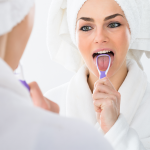 Your tongue facilitates harmful oral bacteria that travels to your digestive system. Here are things that happen when you don’t clean your tongue.
Your tongue facilitates harmful oral bacteria that travels to your digestive system. Here are things that happen when you don’t clean your tongue.
Key takeaways:
- Bad breath is one of the major effects of not cleaning the tongue.
- Bad bacteria on a dirty tongue allows for gum disease.
- You might get dull taste buds, oral thrush and other issues like white patches on oral skin.
This is why you should clean your tongue regularly with a tongue scraper, a metal spoon, or your toothbrush.
Visit your dentist regularly for teeth and tongue cleaning and professional checkups.
Read more here:
https://orawellness.com/tongue-cleaning-importance/
Posted by adwords on 29th August 2019, under Oral Hygiene and Prevention
How To Achieve An Effective Dental Hygiene Routine
 Keeping teeth and gums healthy requires having a consistent dental care routine and making some changes to your everyday habits and diet.
Keeping teeth and gums healthy requires having a consistent dental care routine and making some changes to your everyday habits and diet.
Key takeaways:
– Quit harmful habits like smoking, which can cause both cosmetic issues and oral disease.
– Complement brushing and flossing with the use of a quality mouthwash.
– Limit or avoid sugary drinks and foods, as well as starches, to help prevent cavities.
You should also make a habit of visiting your dentist every six months and having a comprehensive checkup and cleaning.
Read the full story here: https://www.medicalnewstoday.com/articles/324708.php
Posted by adwords on 8th August 2019, under Oral Hygiene and Prevention
Aftercare for Dental Fillings
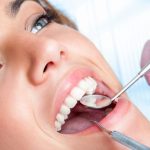 If you take good care of your new filling, you can avoid complications and ensure it lasts:
If you take good care of your new filling, you can avoid complications and ensure it lasts:
– It’s important to keep your new filling clean by gently brushing and flossing around it as part of your daily routine, with a soft bristled toothbrush.
– You can reduce any discomfort by avoiding very hot or cold food or drinks.
– Your dentist will be happy to advise on the best aftercare; if you experience any extreme pain you should contact your dentist immediately.
“With the proper care, your filling will set securely and your tooth will be protected for years.”
Read the full story here: https://yourdentalhealthresource.com/the-best-ways-to-take-care-of-your-new-filling/
Posted by adwords on 27th May 2019, under Miscellaneous
Why Gums Recede and How They Are Treated
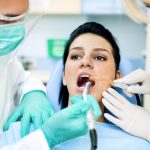 Gum recession occurs when the gums start to pull away from the teeth, exposing tooth roots. The gums are essential in helping protect the teeth, so when they recede there is an increased risk of tooth loss.
Gum recession occurs when the gums start to pull away from the teeth, exposing tooth roots. The gums are essential in helping protect the teeth, so when they recede there is an increased risk of tooth loss.
Key takeaways:
- One of the causes of gum recession can be brushing your teeth too hard, initially resulting in inflammation of the gums.
- Bacteria not properly removed around the teeth can lead to gum disease, which if left untreated can cause tooth loss.
- Tooth grinding adds pressure to the gums and can cause them to recede, for which your dentist may suggest an overnight mouthguard.
“Your dentist may advise you to buy a soft-bristled toothbrush and be more careful when brushing and flossing; your dentist should demonstrate the correct way to brush and floss without hurting your gums.”
Read the full story here
https://yourdentalhealthresource.com/what-are-receding-gumlines-and-how-are-they-treated/
Posted by adwords on 22nd May 2019, under Miscellaneous
Stomach Acid Can Damage the Enamel of Your Teeth
 Acid reflux disease is actually one of the most common causes of oral health problems and tooth decay. How can this acid impact your teeth and what risks are involved? Let’s take a closer look.
Acid reflux disease is actually one of the most common causes of oral health problems and tooth decay. How can this acid impact your teeth and what risks are involved? Let’s take a closer look.
– Damage occurs when stomach acid is pushed up the esophagus and into the mouth.
– High acidic content within the mouth will slowly dissolve enamel.
– This can also lead to a condition known as dry mouth, which will aggravate the condition.
– A low pH will eventually lead to cavities and other serious tooth-related conditions.
“One of the first signs that your enamel may be in trouble is tooth sensitivity.”
When should you see a dentist? Learn more about the warning signs here:
https://yourdentalhealthresource.com/acid-reflux-harms-your-dental-health/
Posted by adwords on 14th May 2019, under Miscellaneous
Pancreatic Cancer May Be Predicted by Oral Bacteria
 Researchers have discovered that the presence of certain types of bacteria may suggest an increased risk of people developing pancreatic cancer:
Researchers have discovered that the presence of certain types of bacteria may suggest an increased risk of people developing pancreatic cancer:
– Researchers have identified a link between oral bacteria and pancreatic cancer.
– People with a history of poor oral health and two types of bacteria associated with gum disease in their mouth may have an increased risk of getting pancreatic cancer.
– In the future this could lead to earlier detection of the disease.
“These bacterial changes in the mouth could potentially show us who is most at risk of developing pancreatic cancer.”
Read the full story here: https://www.medicalnewstoday.com/articles/309303.php
Posted by adwords on 6th May 2019, under Miscellaneous
Make Flossing a Good Dental Habit
 We start flossing later in life than we do brushing our teeth, but it is a habit we should maintain. Flossing can save time and anxiety on visits to the dentist, as without it we can miss cleaning around 35% of the surfaces of our teeth.
We start flossing later in life than we do brushing our teeth, but it is a habit we should maintain. Flossing can save time and anxiety on visits to the dentist, as without it we can miss cleaning around 35% of the surfaces of our teeth.
Key takeaways:
- To prompt flossing, select a trigger point in the day, such as after dinner or before going to bed.
- Keep a stock of floss in handy places like your office desk or your car to maintain your flossing routine when out.
- Be positive about flossing by reminding yourself of the good it does to the health of the teeth and gums.
“Instead of thinking of flossing as a chore, enjoy the feeling of having clean teeth!”
Read the full story here
https://www.drmichaels.com/blog/make-flossing-your-habbit
Posted by adwords on 30th April 2019, under Miscellaneous
Just How Expensive is Cosmetic Dentistry?
 One of the reasons why individuals are hesitant to have cosmetic procedures on their teeth involves the perceived cost. However, it should be noted that there are some factors to take into account.
One of the reasons why individuals are hesitant to have cosmetic procedures on their teeth involves the perceived cost. However, it should be noted that there are some factors to take into account.
- Cosmetic dentistry might be able to stave off more complex issues in the future.
- Certain procedures are relatively inexpensive to perform.
- Insurance providers may be able to absorb a percentage of the cost.
“If your dentist says you need cosmetic dentistry, have a conversation with them about the cost.”
Be sure to follow up these observations via the hyperlink below:
https://www.getholistichealth.com/78995/6-dental-myths-busted/
Posted by adwords on 23rd April 2019, under Miscellaneous
Benefits of Root Canal Treatment
 Having a dentist drill into your tooth to remove the nerve and pulp may not sound like fun but root canal treatment is not as bad as it sounds. In fact, the procedure is the better option when it comes to curing problems that would normally require an extraction.
Having a dentist drill into your tooth to remove the nerve and pulp may not sound like fun but root canal treatment is not as bad as it sounds. In fact, the procedure is the better option when it comes to curing problems that would normally require an extraction.
There are advantages to keeping your natural teeth when possible as they are:
– Better than dental implants or dentures
– Easier to maintain and keep healthy
– More cost-effective than implants
Natural teeth cannot be “replicated by anything man-made” and a dentist will generally try to avoid performing an extraction if at all possible. More information about root canal treatment can be found at http://yourdentalhealthresource.com/are-root-canals-effective-for-saving-natural-teeth/.
Posted by adwords on 16th April 2019, under Miscellaneous
Gum Disease and the Link to Other Health Conditions
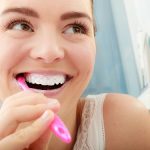
When plaque builds up on teeth the bacteria can lead to inflammation of the gums. Research now suggests a link between gum disease and medical conditions elsewhere in the body.
Key takeaways:
– Bacteria can travel from the mouth through the bloodstream to reach other parts of the body, causing damaging inflammation and plaque buildup.
– Studies have indicated links between gum disease and Alzheimer’s, heart disease and cancer.
– Bacteria from the mouth may also be drawn in to the lungs where it could cause infections.
– Gum disease is a preventable condition through regular teeth brushing, flossing and dentist cleanings.
“Bacteria in the gums can enter the blood supply and be propelled to distant destinations, including the heart, where they can cause inflammation and damage.”
Read the full story here :
https://www.medicalnewstoday.com/articles/324485.php
Posted by adwords on 10th April 2019, under Miscellaneous
Dental Implants and Why You May Prefer Them to Dentures

Dental implants replace missing teeth and have a number of advantages over dentures. Looking and feeling like natural teeth, your dentist can advise whether you could be a candidate for dental implants.
Key takeaways:
– Dental implants are made of titanium and are screwed in to the jaw, with a crown fitted above as the artificial tooth.
– Dental implants are permanent and help prevent further bone loss and sagging cheeks where teeth have been lost.
– They are easier to eat with as they do not slip like dentures or get food trapped between them.
“Dental implants are a permanent solution to missing teeth; in fact, they are so close to having your real teeth that the only real difference is the material they are made of.”
Read the full story here
https://yourdentalhealthresource.com/dental-implants-solution-shifting-ill-fitting-dentures/
Posted by adwords on 1st April 2019, under Miscellaneous
Food and Drink Damaging to Teeth
 Some foods and drinks that are often promoted as being “healthy” are actually the opposite when it comes to teeth and gums. Some surprising contributors to poor dental health include:
Some foods and drinks that are often promoted as being “healthy” are actually the opposite when it comes to teeth and gums. Some surprising contributors to poor dental health include:
• Bread which turns to starch and sticks to the teeth
• Citrus fruits like oranges, lemons and grapefruit contain acids that erode tooth enamel
• Dried fruit contains sugar and sticks in crevices between the teeth
Sugars contained in many foodstuffs can lead to cavities which are “the most common chronic disease” faced by young people so it is important to maintain a good dental health regimen in combination with regular check-ups at the dentist. More food and drinks that damage teeth can be found at:
https://www.healthline.com/health/dental-and-oral-health/worst-foods-for-your-teeth#4.
Posted by adwords on 26th March 2019, under Miscellaneous
About Dental X-Rays
 A dental X-ray is simply a tool the dentist uses to see exactly what is going on inside the teeth and gums and use this information to determine what, if anything, needs to be done. The procedure is simple and involves:
A dental X-ray is simply a tool the dentist uses to see exactly what is going on inside the teeth and gums and use this information to determine what, if anything, needs to be done. The procedure is simple and involves:
- Wearing a lead-lined bib which covers the chest and abdomen
- Having spacers or film holders fitted inside the mouth
- Holding still for a short space of time
Modern X-rays only require “low levels of radiation” that are deemed safe for adults and children. However, a pregnant woman should not get X-rays. A detailed article can be read at https://www.healthline.com/health/dental-x-rays.
Posted by adwords on 22nd March 2019, under Miscellaneous

